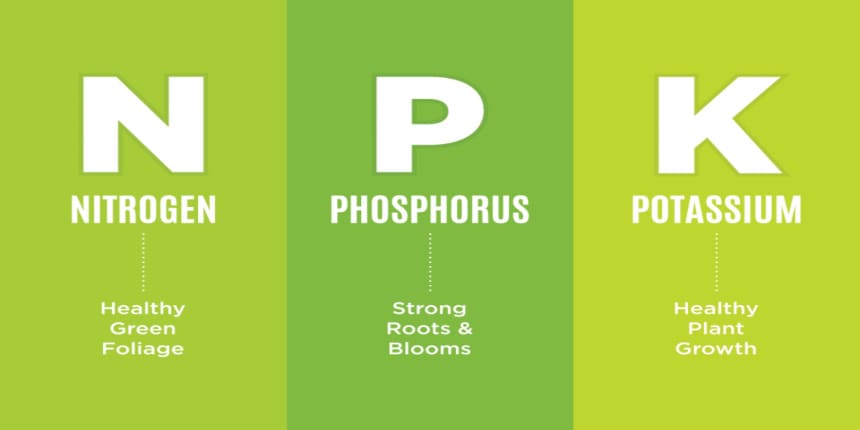NPK Full Form
What is the full form of NPK?
The three nutrients, Nitrogen, Phosphorus, and Potassium, are referred to collectively as NPK. Each of these vital elements is necessary for the development and growth of plants and makes up today's contemporary commercial fertilising industry.
Nitrogen: The most important nutrient since plants absorb more of it than any other element. It is essential for making sure that plants are robust during growth and nutritious to eat after harvest. This is because most living things' tissues are largely made up of protein, which needs nitrogen in order to be produced.
- What is the full form of NPK?
- Why is NPK Important to Plants?
- Chemical composition of NPK

Phosphorus: The second largest component of NPK fertilisers is phosphorus. It has to do with how well a plant can use and store energy as well as how it performs photosynthetically. Additionally, it is necessary for the proper development, growth, and flourishing of plants. Commercial fertilisers employ phosphorus, which is extracted from phosphate rock.
Potassium: The third-most significant nutrient in the field of commercial fertilisation. Additionally to boosting crop output, yield, and general performance & quality, it strengthens plant disease resistance. Potassium helps the plant survive in cold or dry conditions by strengthening the taproot and preventing wilting.
Why is NPK Important to Plants?
All plants need nitrogen, phosphorus, and potassium to grow and develop. Any of these combinations of nutrients must be present for a plant to survive. Nitrogen (N): Nitrogen has a major role in the growth of plant leaves. Phosphorus (P): Phosphorus is necessary for the growth and production of fruit and flowers as well as for the development of roots.
Potassium (K) is a nutrient that helps the general operations of the plant to run smoothly. Knowing a fertiliser's NPK levels can help you choose one that is appropriate for the type of plant you are growing.
Chemical composition of NPK
Because each plant has different nutritional requirements, NPK fertilisers with varying compositions are available. That is, the particular ingredient that is significantly essential for the vegetation is there at a higher proportion or concentration in the fertilisers. The differing compositions are distinguished by a number on the product, known as the NPK value.
Green plants, for example, benefit from a fertiliser with a number of 7-3-6 (this mean the fertiliser has 7% nitrogen, 3% phosphorus, and 6% potassium), but blooming plants, which require more phosphorus, benefit from a fertiliser with a value of 7-8-6 or 6-8-7. The nutrition ratio is significant since nutrient concentrations vary greatly, affecting the interval of fertilisation.